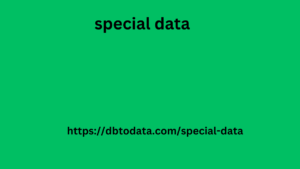13 SEO Myths That Will ProbablyFaster, easier, higher. That’s what we’re all up to when it comes to ranks and traffic, right? Well, easy wins with little effort are rare in SEO. There are most likely SEO myths that will wipe out your business instead of boosting it.
As we are often being asked about many misconceptions from
13 SEO Myths That Will Probably the SEO world, we’ve decided to gather and share with you the most important SEO myths that tend to keep you from improving your ranks and traffic. And of course, clarify them once and for all. 13 SEO Myths That Are Probably Killing Your Ranks SEO can make you or break you, depending on how you’re using it. Here’s an idea of what you should stay away off, the SEO myths. Read them, breath them and live without them: Try the Tool That Will Boost Your Traffic Whether you are an SEO
Professional, Digital Marketing Agency, SMB
or Brand Owner, cognitiveSEO is the only SEO software you’ll ever need. Site Audit On-the-Page and Off-page Factors for Google Rankings Keywords Research and Rank Tracking Content Optimization In-depth Backlink Analysis And Many More! Start Free Trial Using Tabbed Content Can Penalize Your Site Syndicate Content Does Hurt Your SEO It’s Better to Have More Links Than More Content The Disavow Tool Is Useless After Penguin 4.0 Links in Comments and Forums Will Attract Google Penalties Social Signals Don’t Impact SEO All
Backlinks Are Created Equally Keyword Optimization Matters Most in SEO Artificial Social Shares
Will Boost Your Rankings Keyword Density Should Be at Least 2% to Increase Your Rankings A High Number of Links Is All You Need to Rank on the Top You Don’t Need an SEO Specialist, Anyone Can Do It SEO Is All About Rankings The evolution of SEO is faster than our ability to perceive it. Over the years, it appeared so many speculations regarding SEO that you would think you were at a stock
market. The long list of SEO myths continues to be more
and more voluminous. Some of these myths appeared from the need of the so-called experts who wanted to find out Google’s next move. It is sad to see these people living and dying by Google’s quotes and PR statements. Let’s move past the “SEO is dead” phrase and start focusing on certain facts pertaining more to bad documentation rather than to real myths. SEO is not dead and we’ll be long gone when and IF that will really happen. It is very much alive and, we might add, omnipresent.
SEO is not about shenanigans. SEO is not something
you can easily use to bring your newly amazon database created website on top of results like some magic fairy dust. Rather, it is a continuously evolving industry. There is no one-time recipe for SEO algorithms that change every day. You have to adjust your strategies accordingly and act naturally. Otherwise, you might look suspicious. We’ve seen a lot of stressed and frustrated people blaming it on tools and
agencies when they don’t see the SEO efforts equating to payoffs instantaneously.
Even the creation of the world took more than one day. Good results don’t come easily. Digital marketers understand that SEO is not a magic pill that will skyrocket your rankings in one day. Vishal Ray Malik Vishal Ray Malik Founder of ConversionLink / @vishalraymalik 1. Using Tabbed Content Can Penalize Your Site Tabbed content started as a solution for keeping your site clean and to the
13 SEO Myths That Will Probably point, without overcrowding the reader. They could show or hide the content by a click. What started as a good thing for the user ended badly for the search engine crawlers. The hidden text using expandable sections was bad for SEO because bots could not read the text and therefore the website couldn’t get indexed or ranked. Google discarded the websites that used the “click-to-expand” type of
content because it thought they were hiding
it from the user, exactly the opposite of its intention. But as you all know, there might have been a grain of truth in Google’s position towards tabbed content because there are all sorts of people trying to trick Google. John Mueller stated that Google may not rank the page for the tabbed content
because it knows users do not see the content by default.
From our point of view, it’s always a tricky link to the course: facebook ads training problem when we send a user to a page where we know this content is actually hidden. Because the user will see perhaps the content in the snippet, they’ll click through the page, and say, well, I don’t see where this information is on this page. I feel kind of almost misled to click on this to actually get in there. John Mueller SEO John Mueller Webmaster
Trends Analyst at Google
ohnMu You can listen to his answer in the next video: Nonetheless, we must understand that Google penalizes those websites that deceptively use hidden text. Matt Cutts explained in the video below that using JavaScript for collapsing content is an accepted and a common practice by lots of ecommerce websites that want to make their site more welcoming. Using JavaScript for tabbed
content that includes hidden text is an accepted example
within Google’s Webmaster Guidelines. Not all hidden text is considered deceptive. For example, if your site includes technologies that search engines have difficulty accessing, like JavaScript, images, or Flash files, using descriptive text for these items can improve the accessibility of your site. Google logo Google’s Webmaster Guidelines Let’s take Wikipedia, for example, the online encyclopedia that uses on-click expandable content on the mobile version. Wikipedia expandable content If you look at
the picture above you can see that the collapse sections complement the content.
There is a lot of information on the page and snbd host you can easily go and read only what you’re interested in, and not the whole article. Using tabbed content is not bad for SEO and Google won’t penalize your site if it is implemented in a non-spammy way. The hidden text or links is considered spammy if it there solely for search engines rather than visitors. 2. Syndicate Content Does Hurt Your SEO First,
let’s start by saying duplicate content is
neither syndicate content nor article spinning. We all know about duplicate content and the long talk over the year, when it has been said that duplicate content will penalize your website. Things have changed and we learnt that the duplicate content penalty was a myth. Matt Cutts and Andrey Lipattsev said repeatedly that duplicate content doesn’t get you penalized, while copied content does.
As for article spinning, the penalization is applied.
reposting. If all these steps are followed, thensyndicate
content won’t damage your site or your SEO; it won’t be deemed copied content and get you penalized. So the myth of syndicate content must be broken. Syndication is not a form of plagiarism as long as there is a source cited. The truth is that only copied content and article spinning will penalize your website. Here’s what John Mueller says in Search Console Help, regarding content that is automatically generated, doesn’t comply with the copyright infringement and the Webmaster
Guidelines. Our algorithms prefer unique,
compelling and high-quality content. John Mueller SEO John mueller Webmaster Trends Analyst at Google







